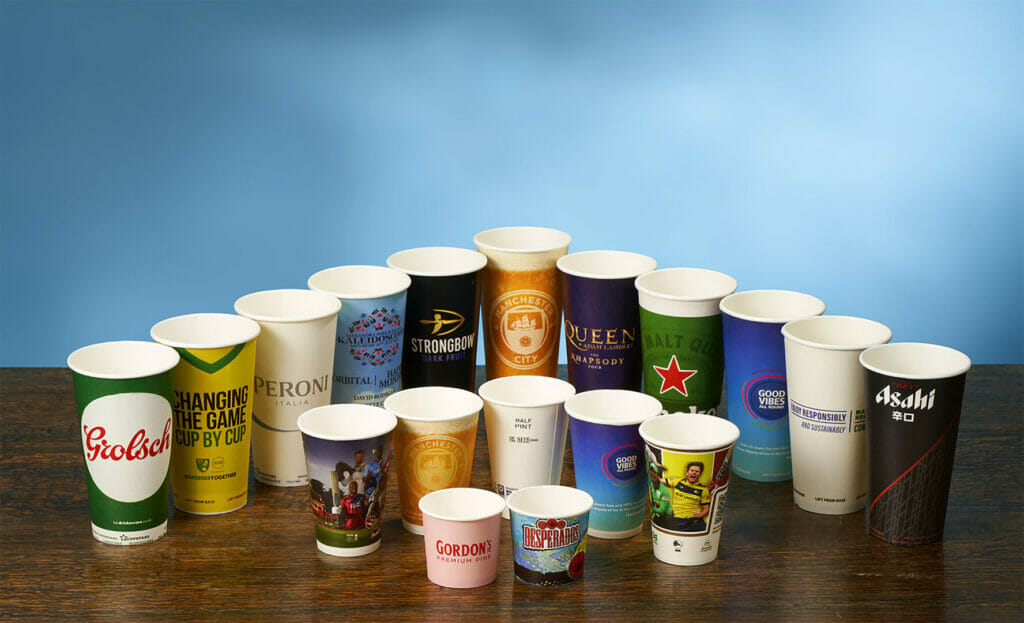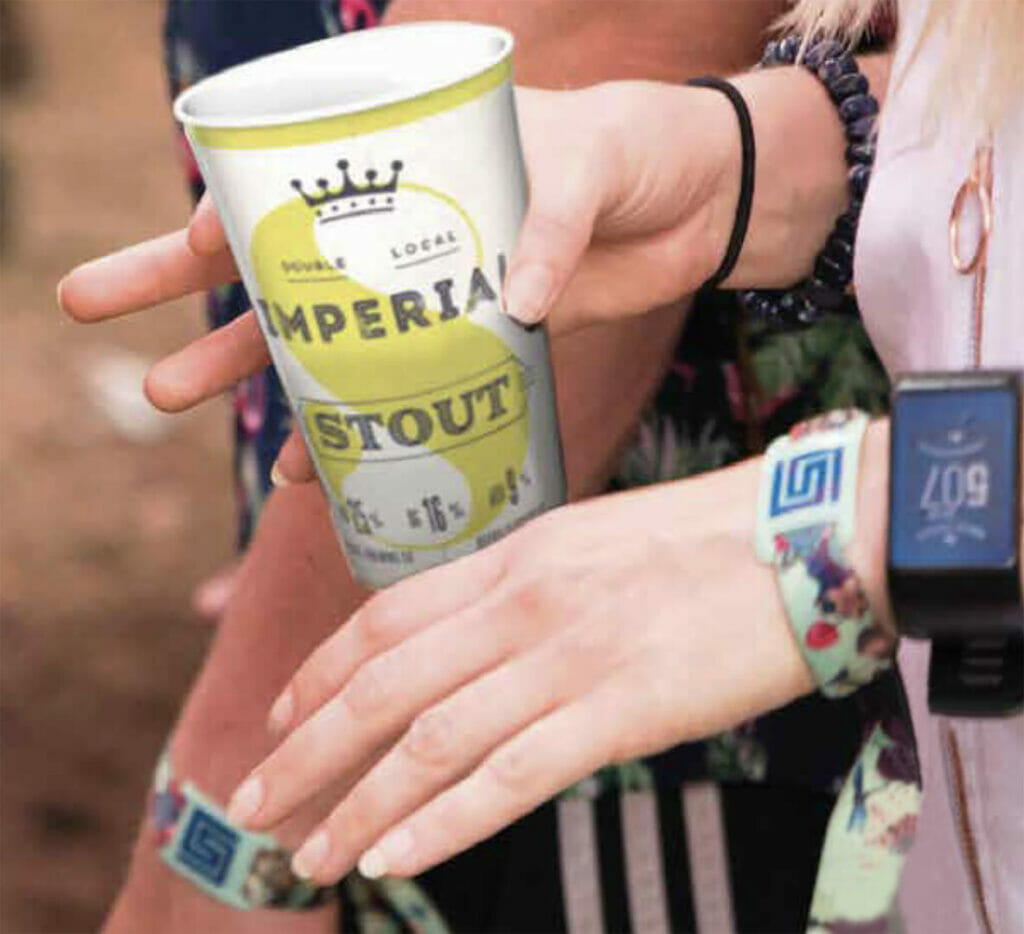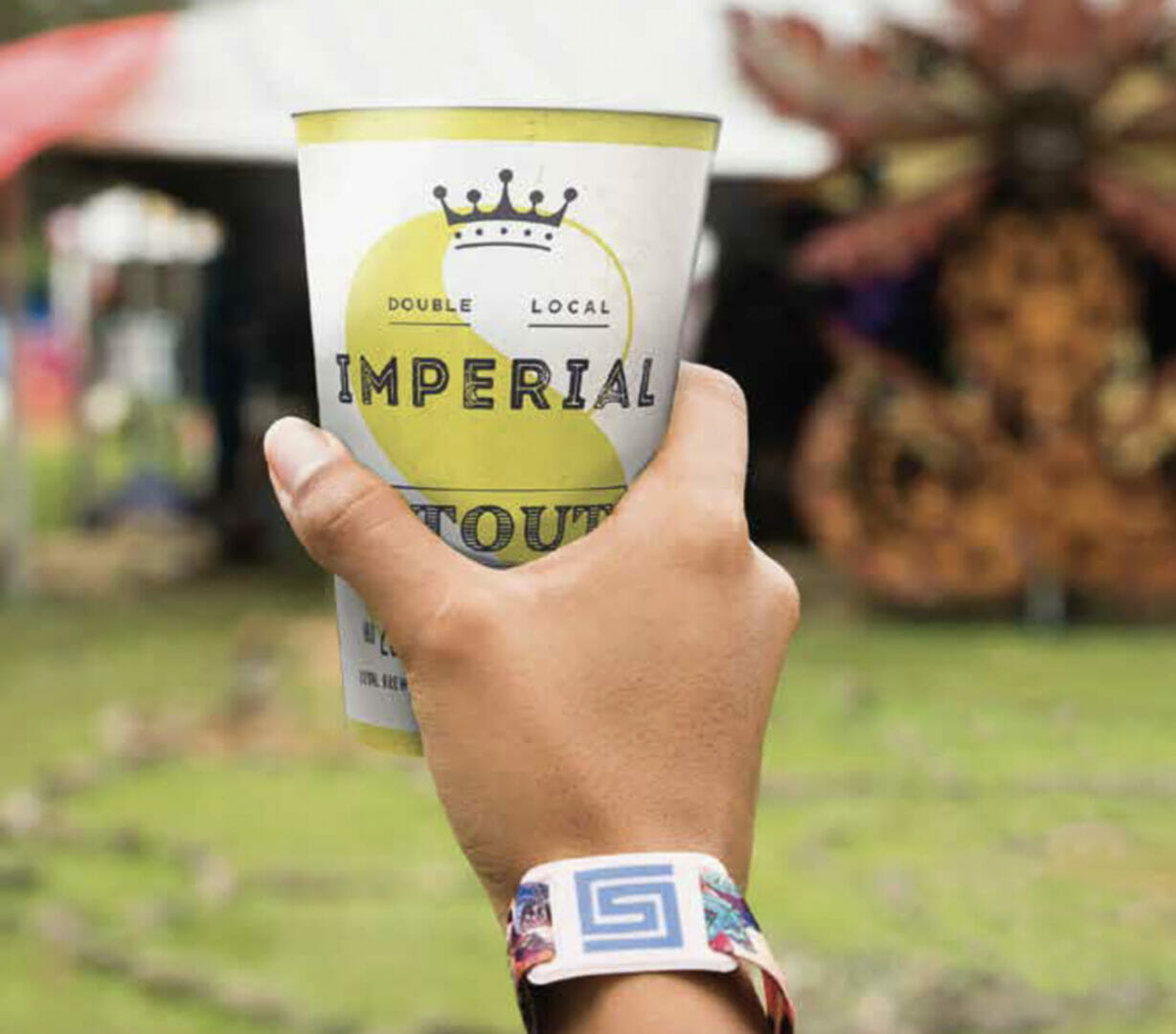Seal Packaging has launched the UK’s first ever UKCA mark registered certified plastic-free paper cups.
Supporting the calls for a ‘Plastic-free pint’
In July, a cross-party group of more than 20 MPs called on the government to outlaw single-use plastic pint cups in a bid to combat plastic pollution. Parliamentarians, including the Green Party’s Caroline Lucas, and organisations such as CAMRA, have backed A Plastic Planet’s ‘Plastic Free Pint’ campaign, seeking an outright ban on plastic pint cups such as those used during music festivals and live sporting events.
According to The Caterer, in the UK, some 100 million plastic cups are used annually at festivals and sporting events. Plastic pint cups are the sixth most commonly found plastic item in Britain’s rivers, and the eighth on the nation’s beaches. Globally 500 billion plastic cups are used each year. If lined up end-to-end these cups would span 50 million kilometres – or more than 130 trips from the Earth to the Moon.
In April, a poll by Yonder found that 89% of Britons wanted plastic pint cups banned in a bid to protect the environment and some 75% of respondents also believed plastic pint cups ‘cheapen the experience’ of their favourite beer.

Now, Seal Packaging has launched a certified plastic-free alternative for pubs, bars, festivals and live sporting events.
The UK’s first UKCA marked plastic-free paper cups
“If people really care about the environment, this certified home-compostable and recyclable, repulpable, biodegradable, free from PLA and PE range of paper cups is a must,” says Sally Gabbitas.
Available in 10oz, 20oz and 22oz sizes plus a 4oz size for tasting, the cups have the prestigious Flustix No Plastic certification by Din Certco, and are the only UKCA mark registered paper cups for 10oz and 20oz.
“We all know that plastic is no longer seen as the answer, and anyway, paper delivers so many advantages beyond its sustainability credentials, as it can easily be printed across the whole surface in CMYK or spot colours,” says Sally Gabbitas. “So, you can actually put a whole poster into consumers’ hands, or run competitions which link through to your current digital campaign with QR codes.”
Packaging with integrity

“Being ‘environmentally friendly’ is never straightforward,” says Sally Gabbitas. “We must consider: how materials are sourced; how they are transported; what alternatives may be available; can the final product be recycled?; and can the final product be composted? But can we go further? If a product can be composted, how likely is that to happen? In theory, this may be the most environmental approach, but if the infrastructure is not available then perhaps a recyclable option is more sustainable.
“Our role is to advise and help our clients navigate the vast number of options to work together on the right packaging approach that is affordable, practical, ethical and sustainable.
“Less is very often more, and that’s why we are proud of our slogan: ‘SEAL – Packaging with integrity’.”

